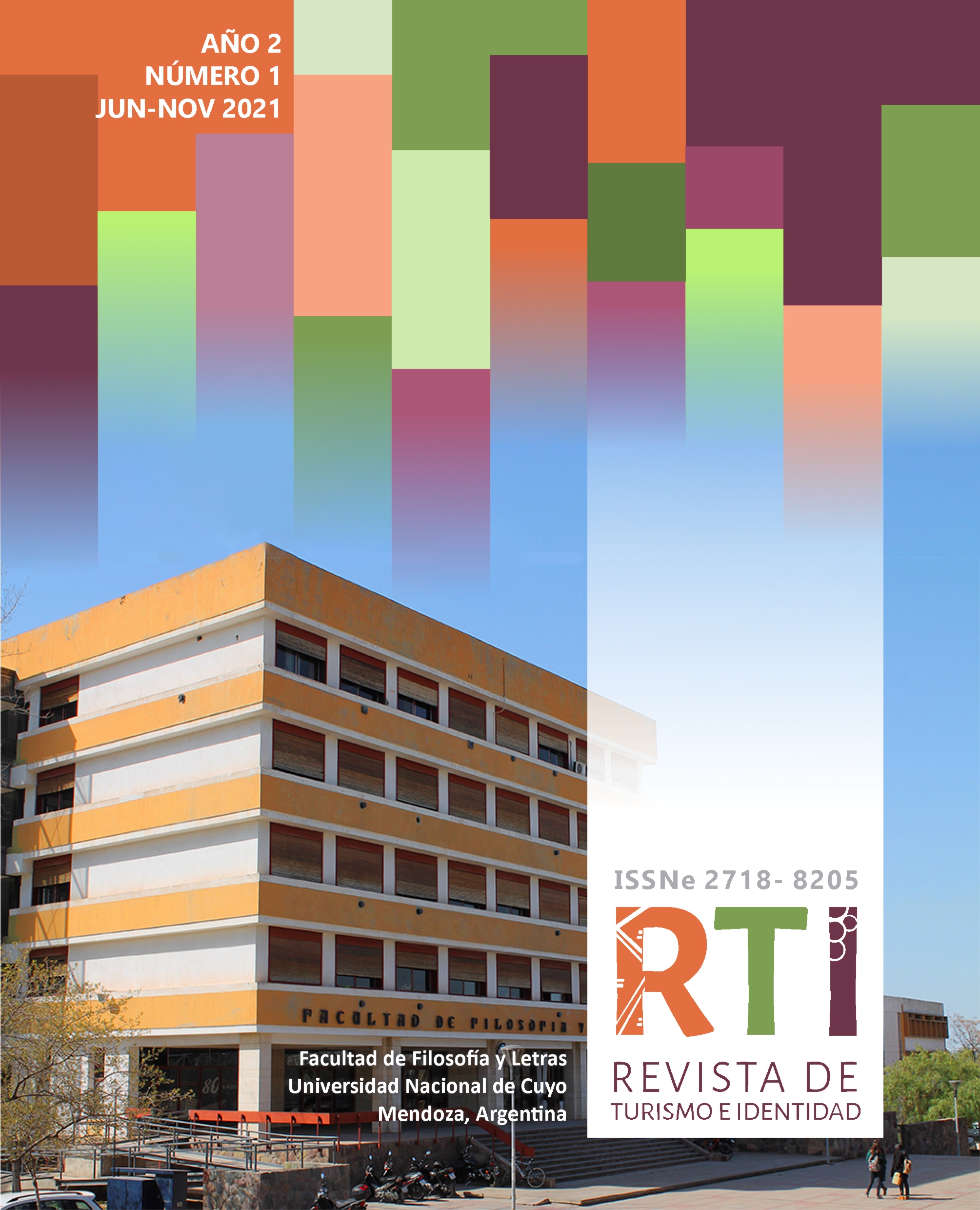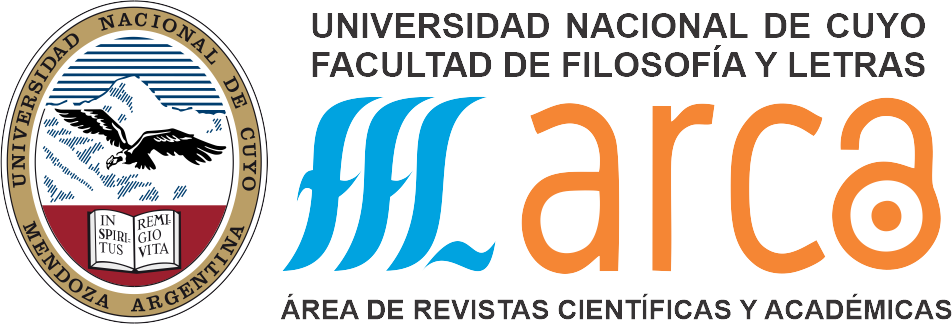Strategic management y public administration The case of tourism in Mendoza and Argentina (2005-2015)
Keywords:
public administration, tourism, strategic management, governmentality, ethosAbstract
In this article we seek to point out the presence of a rationality and an enterprise ethos that runs through the current public administration, focusing on the tourism sector in Mendoza and Argentina between 2005 and 2015. To this end, from a genealogical analysis, we will concentrate on showing the dissemination by contemporary public tourism administration of social values inspired by concepts, tools, and techniques of strategic management. Strategic management is a school of study that entered a process of rationalization sustained in the field of business administration since the second half of the twentieth century. This genealogical analysis, which goes back to the past to understand the present, seeks to define mandates of conduct that stem from the general principle of competitiveness of strategic management and its associated values. Thus, under this lens, we will show and analyse official documentation and a series of interviews with people working in the tourism sector that is the subject of our study.
References
Anca, H. D. (2012). Litterature review of the evolution of competitiveness. Annals of Faculty of Economics, 1(1), 41-46.
Ansoff, I. (1957). Strategies for diversification. Harvard business review, 35(5), 113-124.
Britton, S. (1991). Tourism, capital and place: towards a critical geography of tourism. Environment and planning D. Society and Space (9), 451-478.
Chaffee, E. E. (1985). Three Models of Strategy. Academy of Management Review, 10(1), 89-98.
Clarke, J., & Newman, J. (1997). The Mangerial State. London: Sage Publications.
Coca Carasila, M. (2007). Importancia y concepto del posicionamiento: una breve revisión histórica. Perspectivas (20), 105-114.
Congreso de la Nación Argentina. (2005). Ley N° 25997. Ley Nacional del Turismo. Boletín ofical de la República Argentina, Buenos Aires, Argentina, 07 de enero de 2005.
Dardot, P., & Laval, C. (2013). La nueva razón del mundo. Ensayo sobre la sociedad neoliberal. Barcelona: Gedisa.
Davies, W. (2014). The Limits of Neoliberalism. Authority, Sovereignty and the Logic of Competition. London: SAGE Publications Ltd.
Drucker, P. (1986 [1973]). Management: tasks, responsabilities, practices. New York: Truman Talley Books. E.P. Dutton.
Drucker, P. (1993 [1964]). La gerencia en tiempos dificiles. Madrid: Grafur.
Du Gay, P., Salaman, G., & Rees, B. (1996). The conduct of management and the management of conduct: contemporary managerial discourse and the constitution of the “competent” manager. Journal of Management Studies, 33(3), 263-82.
Foucault, M. (2006 [1978]). Seguridad, territorio, población: curso en el Collège de France (1977-1978). Buenos Aires: FCE.
Foucault, M. (2007 [1979]). Nacimiento de la biopolítica: curso en el Collège de France (1978-1979). Buenos Aires: FCE.
Fumagalli, A. (2010). Bioeconomía y Capitalismo Cognitivo: hacia un nuevo paradigma de acumulación. Madrid: Traficante de sueños.
Gago, V. (2014). La razón neoliberal: economías barrocas y pragmática popular. Buenos Aires: Tinta Limón.
Gordon, C. (1987). The Soul of the Citizen: Max Weber and Michel Foucault on Rationality and Government. En S. a. (Eds) Lash, Max Weber, Rationality and Modernity (págs. 293-315). London: Allen & Unwin.
Hennis, W. (1983). El problema central de Max Weber. Revista de estudios políticos (Nueva Época) (33), 49-99.
Humphrey, A. (2005). SWOT Analysis for Management Consulting. SRI alumni associaton newsletter, 7-8.
Jardim, F. A., Teixeira, A. L., López Ruiz, O. J., & Oliva-Augusto, M. H. (2018). Max Weber e Michel Foucault. Paralelas e Intersecções. São Paulo: EDUC, FAPESP e FFLCH.
Jefatura de Gabinete de Ministros. (2004). Memoria Detallada del estado de la Nación – Año 2003. Buenos Aires: Dirección Nacional del INAP.
Kantola, A., & Seeck, H. (2011). Dissemination of management into politics: Michael Porter and the political uses of management consulting. Management Learning, 42(1), 25-47.
Kiechel, W. (2010). The Lords of Strategy: the secret of intelectually history of the new corporate world. Boston: Harvard Business.
Knights, D., & Morgan, G. (1991). Corporate Strategy, Organizations, and Subjectivity: A Critique. Organisations Studies, 251-273.
Levy, D., Alvesson, M., & Willmott, H. (2003). Critical approaches to strategic management. En M. Alvesson, & H. Willmott, Studying management critically, 2nd edn (págs. 92-110). Newbury Park: SAGE.
López Ruiz, O. (2014). El ethos de los ejecutivos de las trasnacionales: valores sociales en una sociedad que se globaliza. Una trayectoria de investigación. En D. Szlechter, & F. Luci, Sociología del management en la Argentina. Una mirada crítica sobre los actores, los discursos y las prácticas en las grandes empresas del país (págs. 189-231). Buenos Aires: Edicon.
Maclaran, P., Saren, M., Stern, B., & Tadajewski, M. (2013). The SAGE Handbook of Marketing Theory. London: SAGE Publications.
Marazzi, C. (2003). El sitio de los calcetines: El giro lingüístico de la economía y sus efectos sobre la política. Madrid: Akal.
Mas, F. F. (2016). Marketing y posicionamiento: un análisis desde la gubernamentalidad neoliberal. La gestión pública del turismo en la Argentina del siglo XXI. Questión. Revista especializada en periodismo y comunicación, 1(50), 315-330.
Mas, F. F. (2020a). La competitividad como valor social. La gestión pública de turismo en la Argentina del siglo XXI. En D. Navarro-Drazich, Planificación turística I: Formulación. Reflexiones desde el oeste argentino (págs. 57-73). Mendoza: Universidad del Aconcagua.
Mas, F. F. (2020b). Management, estrategia y subjetividad: la competitividad como conducción de vida. Tesis de doctorado inédita. Mendoza, Argentina: Facultad Ciencias Políticas y sociales, Universidad Nacional de Cuyo.
Ministerio de Turismo de la Nación. (2011a). Plan Federal Estratégico de Turismo Sustentable 2020. Argentina.
Ministerio de Turismo de la Nación. (2011b). Directrices de Gestión Turística para Bodegas. Buenos Aires: Autor.
Ministerio de Turismo de la Nación. (2012a). Plan Conectar de marketing internacional Argentina 2012-2015. Buenos Aires: Autor.
Ministerio de Turismo de la Nación. (2012b). Plan operativo anual PFETS 2020. Buenos Aires: Unidad de Coordinación del PFETS 2020 ‐ MINTUR.
Ministerio de Turismo de la Provincia de Mendoza [MINTURMza]. (2014). Plan Estratégico de Desarrollo Sustentable e Innovación turística Mendoza Turismo 2024. Mendoza: Autor.
Municipalidad de la ciudad de Mendoza. (2012). Plan estratégico ciudad de Mendoza 2012-2015. Mendoza: Municipalidad de la capital.
Navarro, D. (2010). Imagen turística argentina. Política turística como política exterior. Mendoza: Editorial de la Universidad del Aconcagua.
Porter, M. (1985). Competitive advantage: creating and sustaining superior performance. New York: Free Press.
Porter, M. (1990). The competitive advantage of nations. Harvard Business Review, 68(2), 71-91.
Porter, M. (1998 [1980]). Competitive Strategy: Techniques for Analyzing Industries and Competitors. New York: Free Press.
Porter, M. (2010 [1985]). Ventaja competitiva: creación y sostenibilidad de un rendimiento superior. Madrid: Ediciones Pirámide.
Porter, M. (2017 [1998]). Ser competitivo: Edición actualizada y aumentada. Título original en inglés: On competition. Barcelona: Grupo Planeta.
Porter, M., & Schwab, K. (2008). The Global Competitiveness Report 2008-2009. Versoix: World Economic Forum - SRO-Kundig.
Porter, M., Argyres, N., & McGahan, A. (2002). An Interview with Michael Porter. The Academy of Management Executive, 16(2), 43-52.
Rasmussen, D. (2017). The Gospel According to Michael Porter. Institutional Investor, 2-11.
Rothschild, R. (1987). The Theory of Monopolistic Competition: E.H. Chamberlin's Influence on Industrial Organisation Theory over Sixty Years. Journal of Economic Studies, 4(1), 34-54.
Sancho, A. (1998). Introducción al Turismo. Madrid: OMT.
Secretaría de Turismo de la Nación. (2005). Plan Federal Estratégico de Turismo Sustentable 2016. Buenos Aires: Autor.
Skålén, P., Fellesson, M., & Fougère, M. (2006). The Governmentality of Marketing Discourse. Scandinavian Journal of Management, 22(4), 275-291.
Subsecretaría de Calidad Turística. Dirección de Formación en Turismo. (2015). Competitividad y Calidad para PYMES Turísticas. Módulo II. Buenos Aires: Campus Mintur.
Subsecretaria de Turismo de Mendoza [SSTURMza]. (2000). TurPlan I Plan de Desarrollo Turístico Mendoza 2000-2005. Mendoza: Gobierno Mendoza - Ministerio de Economía.
Subsecretaría de Turismo de Mendoza [SSTURMza]. (2007). Plan de desarrollo turístico de la Provincia de Mendoza 2007-2011. TurPlan II. Mendoza: Ministerio de Turismo y Cultura de Mendoza.
Weber, M. (2011). La ética protestante y el espíritu del capitalismo. México: FCE.
Weihrich, H. (1982). The TOWS matrix—A tool for situational analysis. Long range planning, 15(2), 54-66.
Downloads
Published
How to Cite
Issue
Section
License
Quienes envíen trabajos a la Revista de Turismo e Identidad, que edita el Instituto de Investigaciones en Turismo e Identidad (IITI) de la Facultad de Filosofía y Letras de la Universidad Nacional de Cuyo (Mendoza, Argentina), otorgan automáticamente licencia no exclusiva y sin límite temporal de su manuscrito a dicha publicación. En consecuencia, como la distribución de la citada Revista no tiene finalidad lucrativa sino académica, el autor (los autores) autoriza(n) a la misma la difusión gratuita en formato impreso y medios electrónicos, tanto en red local como por vía internet.
Se establece que:
- Los/as autores/as conservarán sus derechos de autor y garantizarán a la revista el derecho de primera publicación de su obra.
- Los/as autores/as deben adherir a la Licencia Creative Commons Atribución-NoComercial-CompartirIgual 4.0 Internacional, a menos que se indique lo contrario, mediante la cual el autor permite copiar, reproducir, distribuir, comunicar públicamente la obra sin propósitos comerciales, por cualquier medio o formato. También, se pueden generar nuevas obras derivadas, siempre y cuando se cite y reconozca al autor original y su primera publicación en esta revista.
- Los/as autores/as podrán adoptar otros acuerdos de licencia no exclusiva de distribución de la versión de la obra publicada (p. ej.: depositarla en un archivo telemático institucional o publicarla en un volumen monográfico) siempre que se indique la publicación inicial en esta revista.
- Se permite y recomienda a los/as autores/as difundir su obra a través de Internet (p. ej.: en archivos telemáticos institucionales o en su página web) luego de su publicación, lo cual puede producir intercambios interesantes y aumentar las citas de la obra publicada. (Véase El efecto del acceso abierto).















